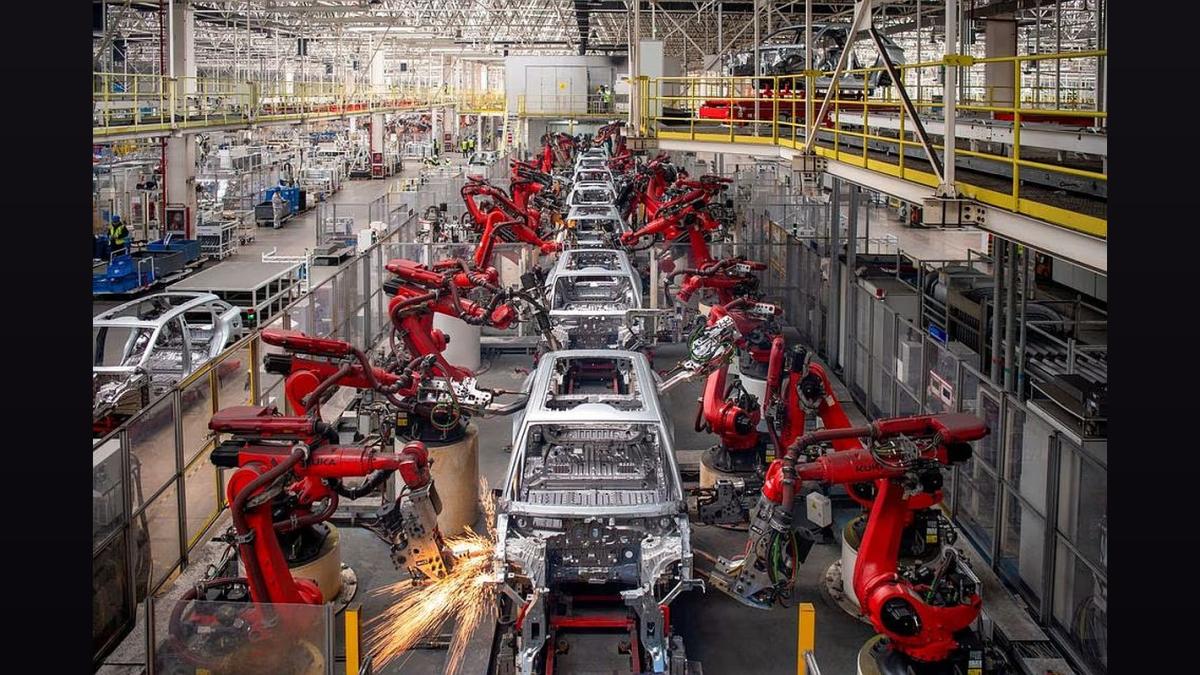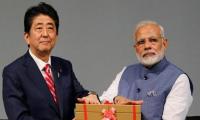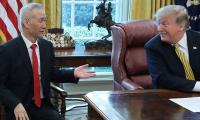India's Inclusive Growth: Strategic Reforms in Customs, GST & Commerce - GTRI
GTRI advocates for strategic reforms in customs duties, GST, and commerce to drive India's inclusive growth, including simplifying customs structure, boosting MSMEs, and reducing reliance on China.

New Delhi, June 13 (PTI) Implementation of key strategic reforms such as simplification of customs duty structure, GST, and not incentivising low value-added electric vehicles would help India ensure its sustainable development and inclusive growth, GTRI said on Thursday.
Economic think tank Global Trade Research Initiative (GTRI) also said that India is standing on the cusp of a transformative era and there is an urgent need for comprehensive economic reforms.
"From simplifying the convoluted customs duty structure to pioneering regulatory sandboxes for cryptocurrencies, and from boosting the MSME sector through GST (Goods and Services Tax) reforms to fortifying our energy security, this agenda lays the foundation for a robust, resilient, and globally competitive India," it said.
It said that the current basic customs duty structure, which affects USD 680 billion worth of imports, has not been reviewed in 20 years, leading to over 27 different duty rates and over 100 specific or mixed duty slabs.
Currently, 85 per cent of customs duty revenue comes from less than 10 per cent of tariff lines (or product categories), while 60 per cent of tariff lines contribute less than 3 per cent of revenue.
"With some adjustments, the average import tariff could be reduced from 18.1 per cent to below 10 per cent without impacting important products. "Simplification is necessary to avoid global criticism, as highlighted by former US President Donald Trump calling India the tariff king," it said.
The think tank suggested increasing the GST exemption limit for a firm's annual turnover from 40 lakh to 1.5 crore as this will be transformative for India's MSME sector, promoting job creation and growth.
Firms with less than Rs 1.5 crore turnover make up over 80 per cent of registrations but contribute less than 7 per cent of the tax collected, it said adding a yearly turnover of 1.5 crore equals 12-13 lakh monthly turnover, translating to just Rs 1.2 lakh at a 10 per cent profit margin.
"The new limit would reduce the GST system's load from 1.4 crore taxpayers to less than 23 lakh, allowing for the introduction of invoice-matching for 100 per cent compliance, eliminating fake invoices and tax theft. Increased tax collection will offset the 7 per cent tax loss," GTRI Founder Ajay Srivastava said.
It also asked the government not to incentivize low value-added Electric vehicles (EVs).
Due to restrictions from the US and EU on Chinese EVs, China is shifting its focus to Southeast Asian markets, including India.
"In few years, every third EV on Indian roads, as well as numerous passenger and commercial vehicles, could be made by Chinese firms, either independently or through joint ventures with Indian companies," it said.
Since current EVs rely heavily on Chinese batteries and parts, accounting for 60-90 per cent of their cost, India should avoid incentivizing low value-added EVs," the GTRI said, adding It is crucial to balance increased EV adoption with the need to protect and develop the domestic auto industry.
Further, it suggested focusing on developing capacity to produce inputs and intermediates for both chemical and fermentation-based Active Pharmaceutical Ingredients (APIs).
India imports 70 per cent of its APIs and over 80 per cent of its biosimilars from China, posing a significant risk to the industry and national security.
It added that simplification of e-commerce export rules will help in boosting India's exports.
India has more than 20 lakh firms that produce good quality products and services but less than a lakh of these export.
"Simplifying RBI, banking, Customs, GST and DGFT rules related to e-com export will help them to start exporting Handicrafts, jewellery, ethnic wear, decorative paintings, Ayurveda and many more products," Srivastava said.
He added that India relies on China for 30 per cent of its industrial product imports, with imports soaring tenfold in the past two decades.
China is also the top import supplier in each of the major industrial product categories.
"As Chinese firms expand their operations in Indian markets, imports are expected to rise further. This escalating dependence calls for a strategic approach to cut reliance on China," he said.
Economic think tank Global Trade Research Initiative (GTRI) also said that India is standing on the cusp of a transformative era and there is an urgent need for comprehensive economic reforms.
"From simplifying the convoluted customs duty structure to pioneering regulatory sandboxes for cryptocurrencies, and from boosting the MSME sector through GST (Goods and Services Tax) reforms to fortifying our energy security, this agenda lays the foundation for a robust, resilient, and globally competitive India," it said.
It said that the current basic customs duty structure, which affects USD 680 billion worth of imports, has not been reviewed in 20 years, leading to over 27 different duty rates and over 100 specific or mixed duty slabs.
Currently, 85 per cent of customs duty revenue comes from less than 10 per cent of tariff lines (or product categories), while 60 per cent of tariff lines contribute less than 3 per cent of revenue.
"With some adjustments, the average import tariff could be reduced from 18.1 per cent to below 10 per cent without impacting important products. "Simplification is necessary to avoid global criticism, as highlighted by former US President Donald Trump calling India the tariff king," it said.
The think tank suggested increasing the GST exemption limit for a firm's annual turnover from 40 lakh to 1.5 crore as this will be transformative for India's MSME sector, promoting job creation and growth.
Firms with less than Rs 1.5 crore turnover make up over 80 per cent of registrations but contribute less than 7 per cent of the tax collected, it said adding a yearly turnover of 1.5 crore equals 12-13 lakh monthly turnover, translating to just Rs 1.2 lakh at a 10 per cent profit margin.
"The new limit would reduce the GST system's load from 1.4 crore taxpayers to less than 23 lakh, allowing for the introduction of invoice-matching for 100 per cent compliance, eliminating fake invoices and tax theft. Increased tax collection will offset the 7 per cent tax loss," GTRI Founder Ajay Srivastava said.
It also asked the government not to incentivize low value-added Electric vehicles (EVs).
Due to restrictions from the US and EU on Chinese EVs, China is shifting its focus to Southeast Asian markets, including India.
"In few years, every third EV on Indian roads, as well as numerous passenger and commercial vehicles, could be made by Chinese firms, either independently or through joint ventures with Indian companies," it said.
Since current EVs rely heavily on Chinese batteries and parts, accounting for 60-90 per cent of their cost, India should avoid incentivizing low value-added EVs," the GTRI said, adding It is crucial to balance increased EV adoption with the need to protect and develop the domestic auto industry.
Further, it suggested focusing on developing capacity to produce inputs and intermediates for both chemical and fermentation-based Active Pharmaceutical Ingredients (APIs).
India imports 70 per cent of its APIs and over 80 per cent of its biosimilars from China, posing a significant risk to the industry and national security.
It added that simplification of e-commerce export rules will help in boosting India's exports.
India has more than 20 lakh firms that produce good quality products and services but less than a lakh of these export.
"Simplifying RBI, banking, Customs, GST and DGFT rules related to e-com export will help them to start exporting Handicrafts, jewellery, ethnic wear, decorative paintings, Ayurveda and many more products," Srivastava said.
He added that India relies on China for 30 per cent of its industrial product imports, with imports soaring tenfold in the past two decades.
China is also the top import supplier in each of the major industrial product categories.
"As Chinese firms expand their operations in Indian markets, imports are expected to rise further. This escalating dependence calls for a strategic approach to cut reliance on China," he said.
You May Like To Read
TODAY'S MOST TRADED COMPANIES
- Company Name
- Price
- Volume
- Vodafone-Idea-L
- 11.65 (+ 3.56)
- 106772451
- Alstone-Textiles
- 0.28 ( -3.45)
- 44187760
- Mangalam-Industrial
- 0.88 ( -2.22)
- 39177573
- Sunshine-Capital
- 0.27 (+ 3.85)
- 35956340
- GMR-Airports
- 104.40 (+ 6.37)
- 30453005





